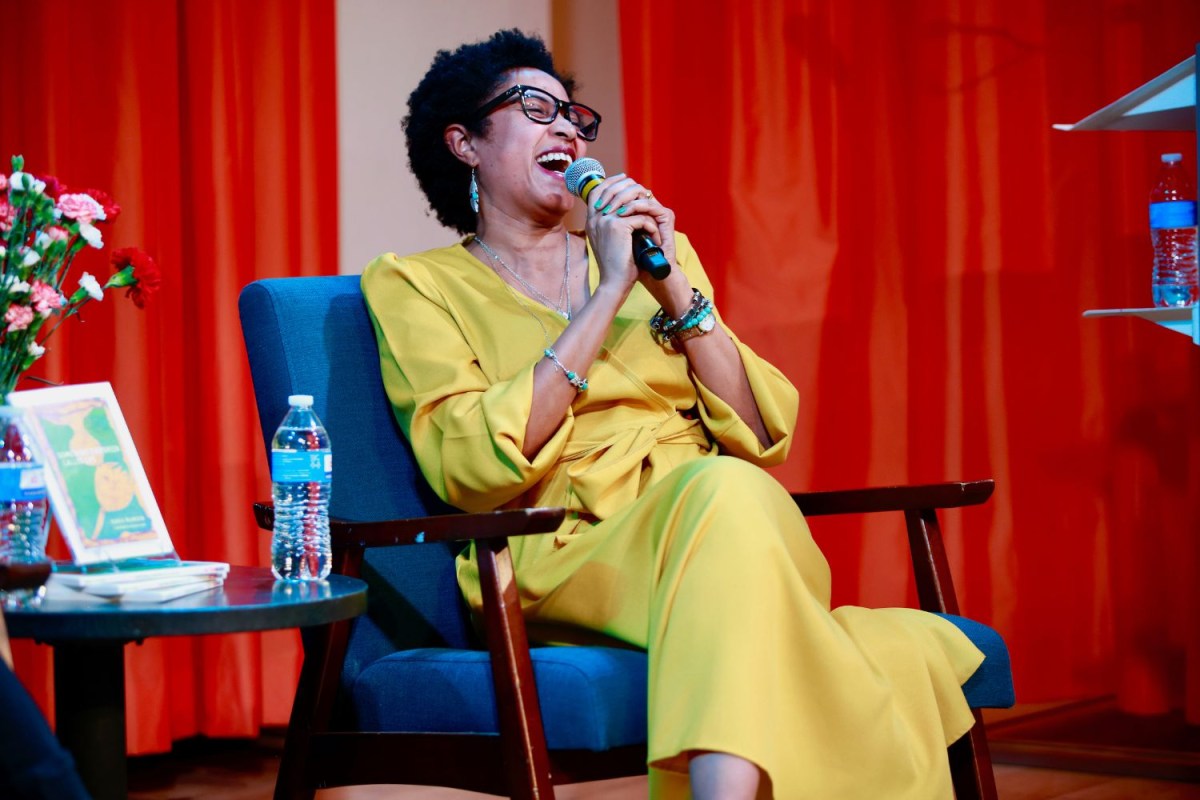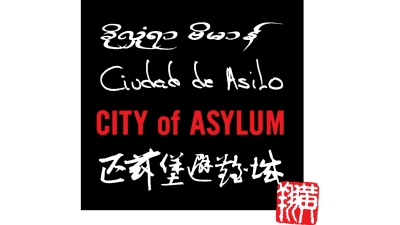When Sudanese activist and best-selling author Rania Mamoun celebrated the release of her poetry collection, “Something Evergreen Called Life,” at City of Asylum in March, it was not your average book launch. It was the first public-facing event she participated in without the use of her pseudonym, RaMa, since her arrival in Pittsburgh in 2019.
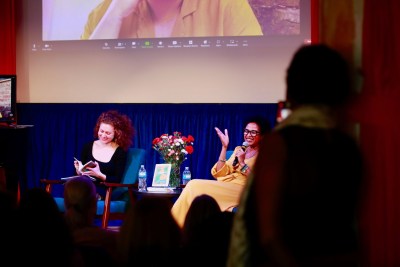
“I will always remember the palpable energy of collective love, support and pride in the room on the day of Rania’s book launch,” said Catherine Skolnicki, the residency manager at City of Asylum. “A feeling of relief was present, mainly for Rania, and for those of us who knew her and her challenge of maintaining anonymity here for nearly four years.”
Mamoun spent years as a diligent activist in Sudan. She did all she could to speak and act out against the regime of Omar al-Bashir, hosting resistance group meetings in her own home, distributing flyers and writing on walls, and participating in demonstrations and protests in the streets. After she was forced to flee with her young daughters, she arrived in Pittsburgh’s North Side to begin her new life as a writer-in-residence. For her safety, her identity was kept secret from the public, and it wasn’t long before her life in anonymity grew even more isolated due to COVID.
For Mamoun, far from home and friends, living in a city so different from her own, and faced with the anxiety of keeping her identity secret, separation was nearly complete. Moving through feelings of grief and fear, she began to write, encouraged and (virtually) accompanied by City of Asylum co-founder Diane Samuels. Mamoun wrote a poem a day for 100 days, documenting not only her despair, but also her moments of hope.
These poems would become “Something Evergreen Called Life,” the collection that would lead to a sunshine-filled Saturday in March, a gathering of new friends and loved ones where Mamoun would share her work and her name with the world. “I feel more myself, I feel that I got my identity back,” she said. “I’m not scared anymore.”
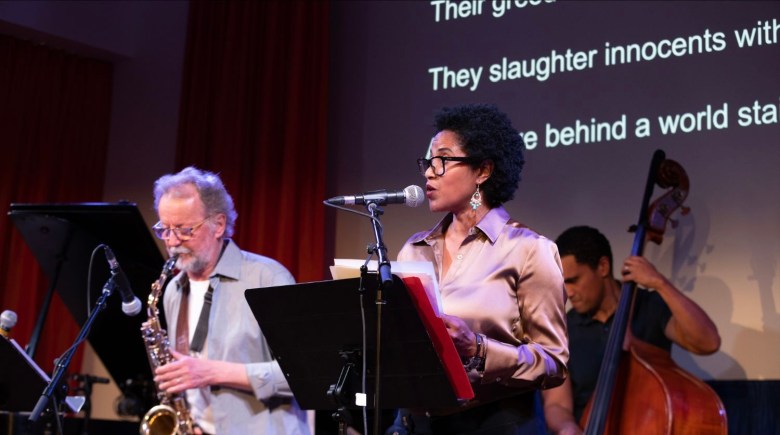
Now free to be her fullest self, Mamoun is embracing more opportunities to participate in public events. This October, she will be featured in not one, but two public programs at City of Asylum as part of their third annual International Literary Festival (LitFest).
At its core, LitFest aims to highlight and celebrate global voices and literature and to encourage cross-cultural exchange. Mamoun’s first event offers a reading and conversation with fellow Sudanese author and Caine Prize winner Leila Aboulela.
“I’m so excited for the LitFest events,” Mamoun explained. “First, because I am meeting with [Leila Aboulela] who I have admired since I was in my 20s … I never would have thought that I would meet her one day.”
Aboulela, also living away from the pair’s home country of Sudan, resides in Scotland. The two will have the chance to discuss their craft, the reality of writing as women and how writing away from home has influenced their work.
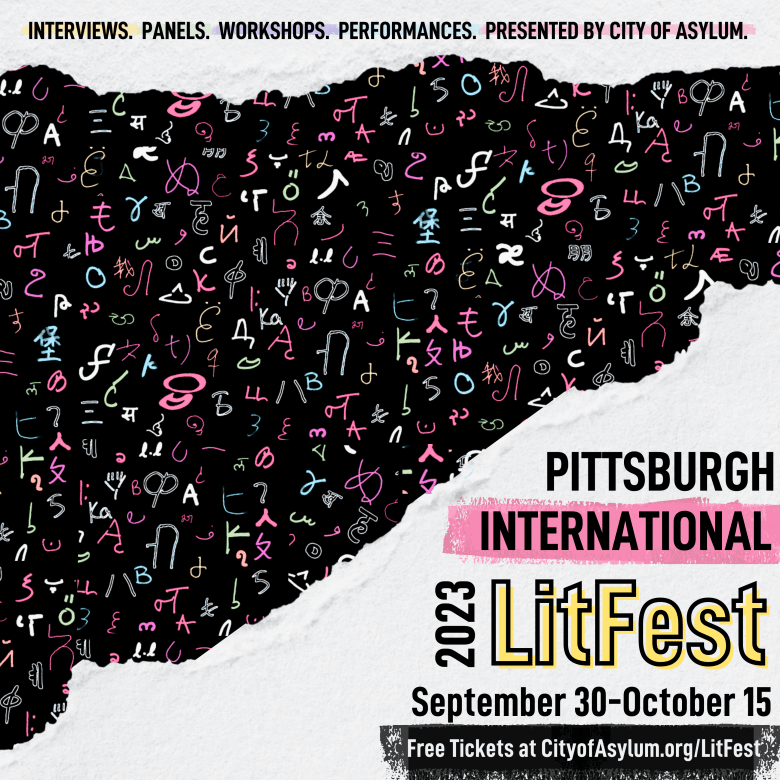
Continuing City of Asylum’s practice of amplifying global voices, Mamoun’s second program at LitFest comes in the form of an ambitious collaboration between 11 writers. It includes some writers from the University of Iowa’s International Writers Program as well as each of Mamoun’s fellow writers-in-residence at City of Asylum: Jorge Olivera Castillo, Oleksandr Frazé-Frazénko, Olena Boryshpolets, Anouar Rahmani and Volodymyr Rafeyenko.
Skolnicki explained that a program like this “offers the public insight into the diverse layers of brilliance, perspective and creativity that the residency program is hosting, and to the artists who [she has] the fortune of working with nearly every day.”
The LitFest program features incredible writers from South Africa, Ukraine, Jamaica, the Netherlands, Yemen, Cuba and more, all exploring and sharing their different passions across multiple genres. For Mamoun, the program is another step away from isolation and into the arms of community.
“To participate with other writers in the second event, it feels like an opportunity to connect with [them] and hear from different nationalities,” she said. “Each writer writes about their experience, which gives us a peek into their cultures in their own countries.”
Far from the uncertainty and solitude of her arrival in 2019, Mamoun’s participation in this festival continues a joyful heralding of a new, liberated chapter in her life — one filled with warmth, connection and plenty of light.

